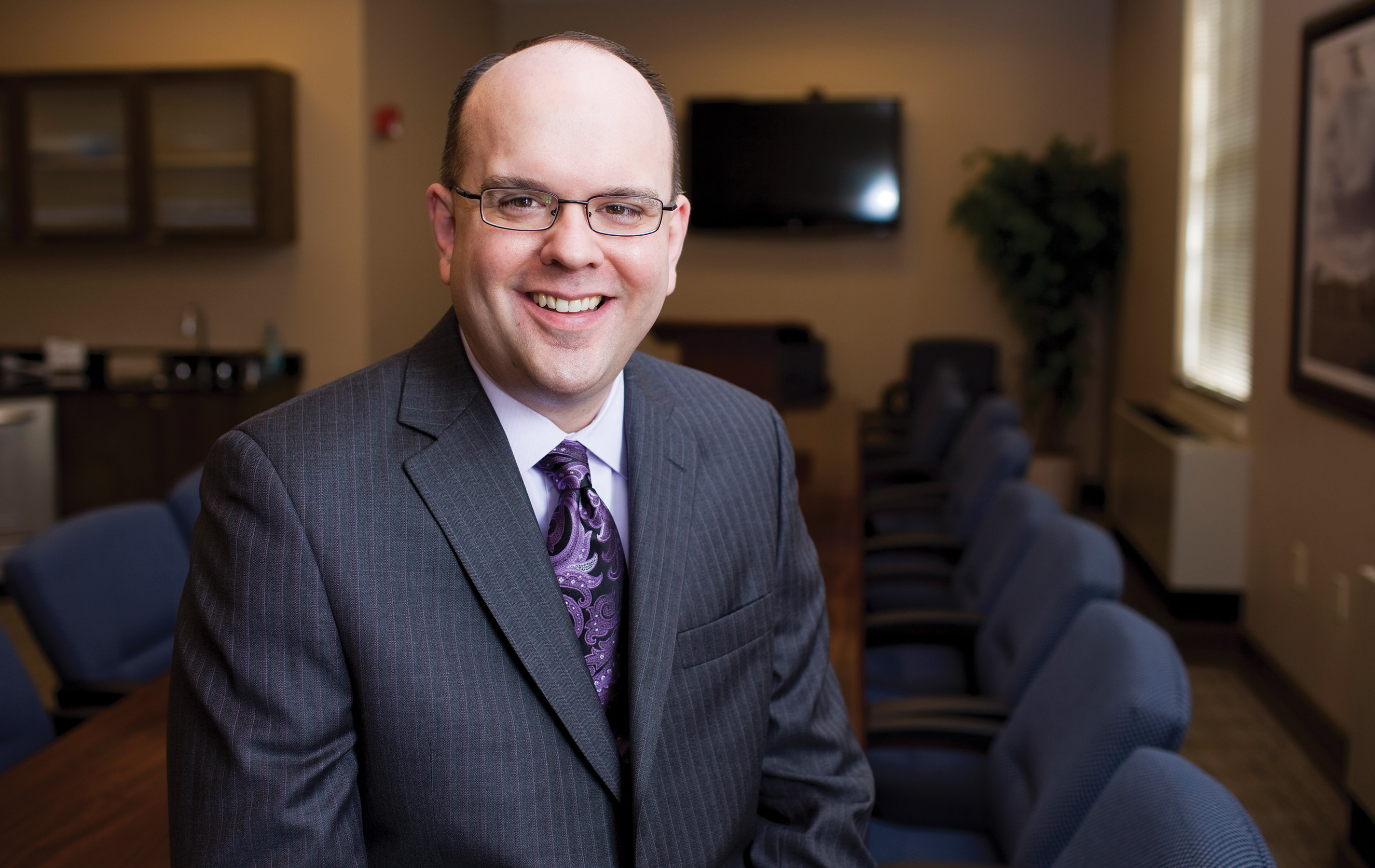EDITOR’S NOTE: Adam W. Greenway doesn’t go long without talking about evangelism. And it’s easy to understand why: It’s both his calling and his vocation. Greenway recently sat down with Southern Seminary Magazine to discuss his passion for evangelism, where it came from and why, for him, that means leading a seminary school.

ACH
You were called to ministry, but there’s still an array of things yo could hone in on. Why evangelism?
AG
When I was at Southwestern Seminary, I was deeply impacted by professors like Roy L. Fish and Malcolm McDowell. These men, not just had a passion I think for the gospel and for the inerrancy of Scripture, the deity of Jesus, the resurrection and other things that matter, but these were churchmen.
These were people who clearly, when they taught, you could tell it wasn’t only cognitive, it was effective. I saw Roy Fish weep over lostness in class. And I was deeply impacted by that.
And between three men — Roy Fish, Malcolm McDowell, and Doug Blount in particular — the intersection of apologetics and evangelism really became a strong passion and interest of mine.
That only went to the next level when I came to Southern Seminary for the doctoral program, and being able to functionally double major in evangelism and apologetics and then write a dissertation on I think a man who uniquely integrated all of those things in R.A. Torrey.
ACH
If you’re someone who is, as you are, particularly interested in evangelism, why not be a missionary or church planter? Why surround yourself with Christians in a seminary?
AG
For me, one is the sense of I believe I’m called to this task, and I believe I’m called to do this in a way that uniquely I’m not called to do something else in the same allocation in time, geography, and setting. But it also comes down to multiplication. You know the old proverb goes like this: Catch a man a fish and he’ll eat for a day, teach a man to fish and he can eat for a lifetime. I get to not just fish for me, to use the words of Jesus, but I get to teach the fishers of men. There’s a multiplying impact with that. And especially here at Southern where we require every master student, irrespective of degree program or concentration, to take a course in personal evangelism. That is massive.
Oftentimes, students will come into my personal evangelism class not necessarily excited about the fact that they are required to take that class. And every semester, the Lord gets a hold of students, sometimes for the first time, are going out and engaging unbelievers, sharing the gospel, and leading people to Christ. That sows seeds that then impacts these students as they go out and become pastors, church planters, missionaries.
ACH
Across Christendom this year, everyone is talking about the Protestant Reformation. At its heart, as you know, is Luther’s working the Bible in the language of the people and removing barriers from people’s access to the Word. How do you think about, talk about the work of personal evangelism today as being part of that Reformation tradition?
AG
I think clearly the heart of the Reformation was, “What is the gospel? What is the nature of faith?” These are not inconsequential matters; these are massive.
And when we are doing personal evangelism, we are wrestling with life’s ultimate questions and matters that are inherently biblical and theological in nature. And we have to get these things right.
Personal evangelism is the application of biblical, theological truth to the sin issues that people are confronted with, and telling them how they can have their sins forgiven and be reconciled to God.
It is the greatest news, the greatest blessing, the greatest opportunity to declare, as has been declared not just back to the Reformation but back to the apostolic era, that Christ is a friend of sinners.
This message has been entrusted to us, the church.
ACH
What does it look like for you to be involved with personal evangelism?
AG
First, intentionality is critical. For all of us who are engaged in some sort of Christian work or service, we are primarily spending time with believers, which means we have to be intentional to circulate around people who are not yet believers.
Second, I’ve got to be diligent in terms of my time. Time is the great equalizer. We’ve all been given the same allotment. And so I’m never in a position where I can say, “I don’t have time to witness.” I have to say, “I haven’t made the time to witness.”
ACH
When we talk about evangelism in everyday life, what are we actually talking about?
AG
I think the goal in evangelism is always to go as far down the road of the gospel story as possible. My intentionality is I want to go all the way to the cross, the good news, calling people to repent and believe.
But I recognize — whether it’s time, circumstances, the person’s worldview, or whatever — I may not be able to get down that road in one conversation.
But I’d much rather, in a sense, have a trajectory and go as far as I can and not get there than stop short and underestimate how God might be at work. I’ve found in my personal evangelism, I can often underestimate how God may have already sent others into the life of the individual with who I’m trying to share.
I come along, and I may be the one who gets to see the harvest because there are other people who have labored. Or, there may be times I may be discouraged because I didn’t get that far, but I may have planted a seed.



